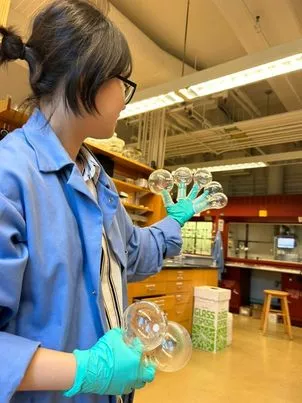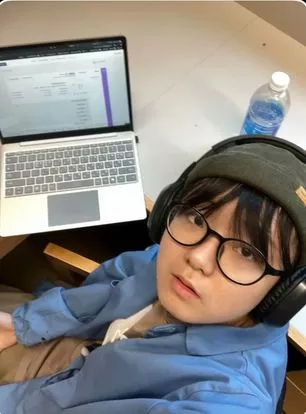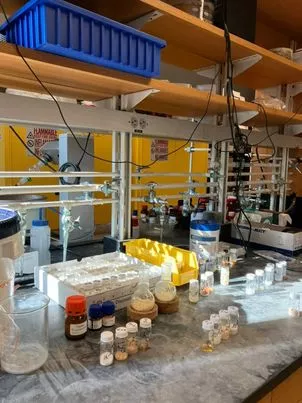
Name: Eunjeong Shin
Class Year: 2025
Major: Biochemistry and Molecular Biology
Hometown: Changwon, Korea
Internship Organization: Bryn Mawr Department of Chemistry
Job Title: Summer Science Research (SSR)
Location: Bryn Mawr, PA
What's happening at your internship? We would love to hear what kind of work you are doing!
In Dr. Patrick Melvin's organic lab, we experiment on fluorination, which is adding flourine or a compound of flourine to another molecule. Fluorination is widely used in pharmaceutical drugs, specifically in drug designs where the introduction of fluorine atoms can significantly change the molecule’s lipophilicity, solubility, acidity, and basicity. Dr. Melvin's lab has recently published a fluorination reagent called SIF, and I am synthesizing and exploring different fluorinated reactions with SIF.
Why did you apply for this internship?
After taking organic chemistry in my sophomore year, I knew that I wanted to continue working in an organic chemistry lab. Organic chemistry was the gateway to understanding chemistry in depth and it was fascinating to see how everything is made up of chemistry and relies on it. Throughout the course, I was especially interested in the laboratory component where I could synthesize a molecule of my own. With an interest in expanding my knowledge of organic chemistry, I want to pursue graduate studies and hence wanted to gain more hands-on lab experience and skills. From applying to summer science research, I wanted to expose myself to more chemistry and solidify the foundations during my academic year.
What is something you have learned from your internship that you didn't expect?
In an organic lab, troubleshooting is a crucial approach to obtaining results. It involves trial and error to synthesize a specific molecule and optimize the methodology. I was not expecting to engage in repetitive work and encounter several failures. At first, I used to feel frustrated and doubted my abilities whenever a project did not yield the expected outcomes. However, my advisor (PI) encouraged me and told me that such setbacks are normal aspects of chemistry and that I do not have to be discouraged by the results. With my PI’s guidance and as I got used to how labs work, I shifted my focus towards understanding why certain reactions did not succeed and tried finding solutions when the project seemed unyielding.
Can you talk about the skills you are learning and why they are important to you?
I am certainly acquiring new lab skills (such as utilizing/analyzing NMR, GCMS data, working with automated columns) and reinforcing the techniques that I already knew. Additionally, I have strengthened my ability to think critically. When analyzing the NMR results of the synthesized product, I learned to analyze the structure of the molecule and what impurities there could be, and how I can optimize it the next time. Moreover, my internship environment has nurtured my ability to work independently where I was able to learn how to face the problem and make decisions to solve it. This made me able to work independently and be more confident in what I am doing and contributing to the lab.
Visit the Summer Internship Stories page to read more about student internship experiences.


